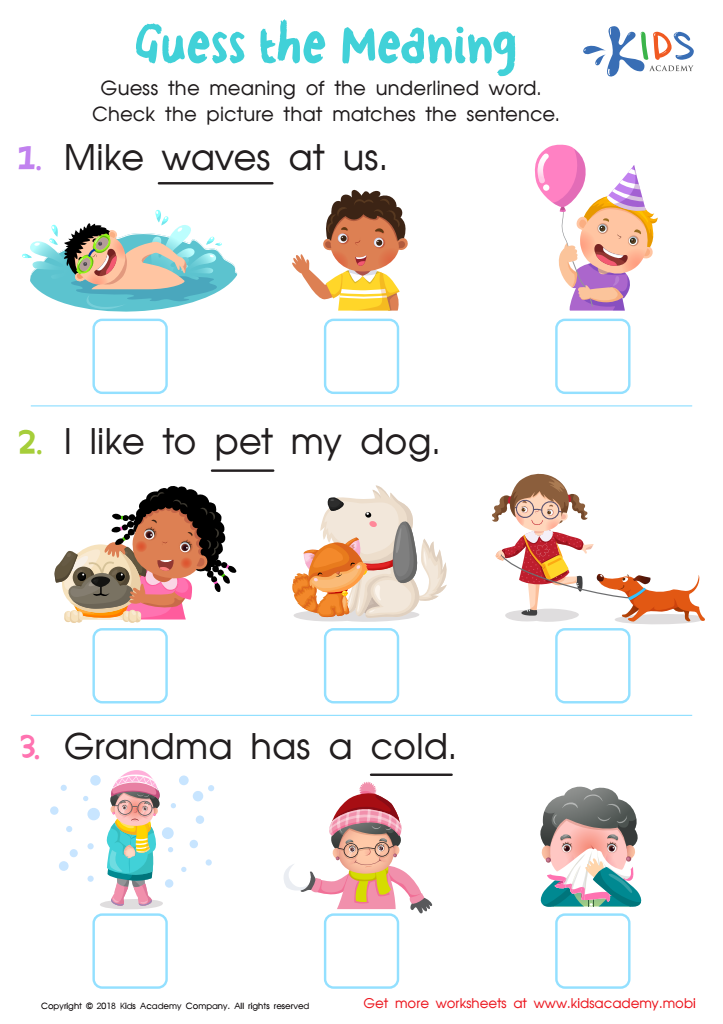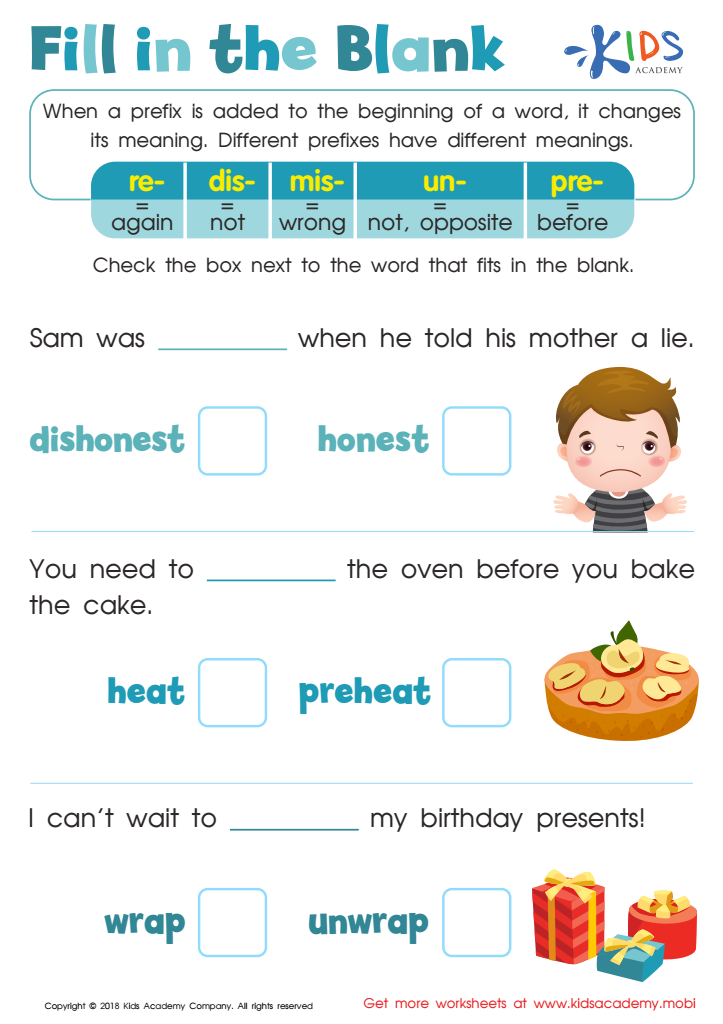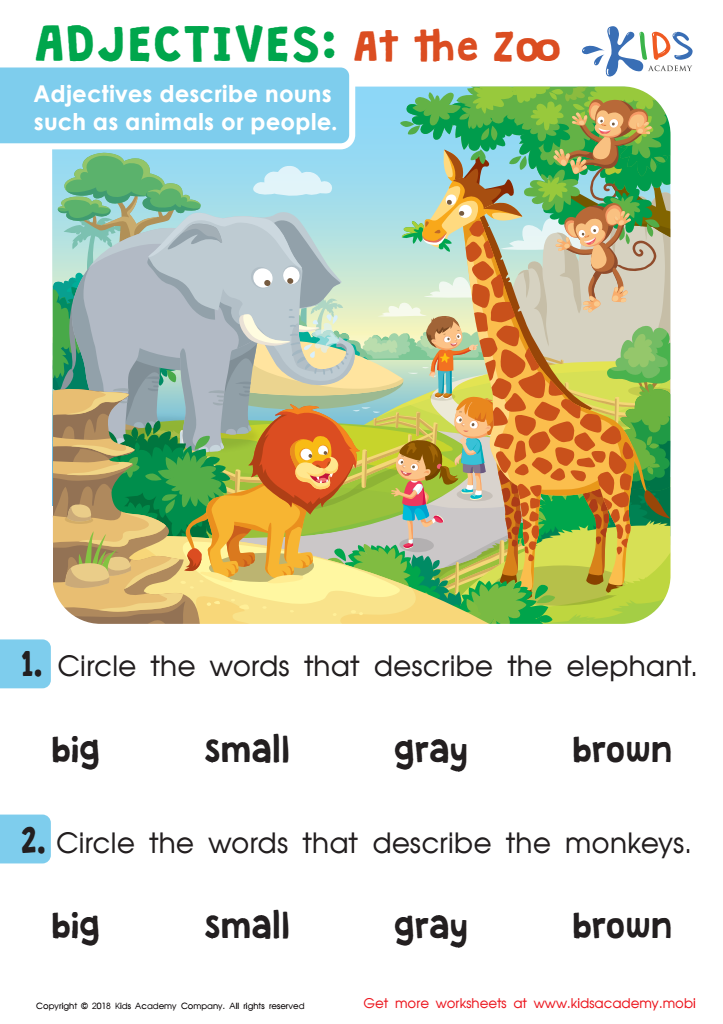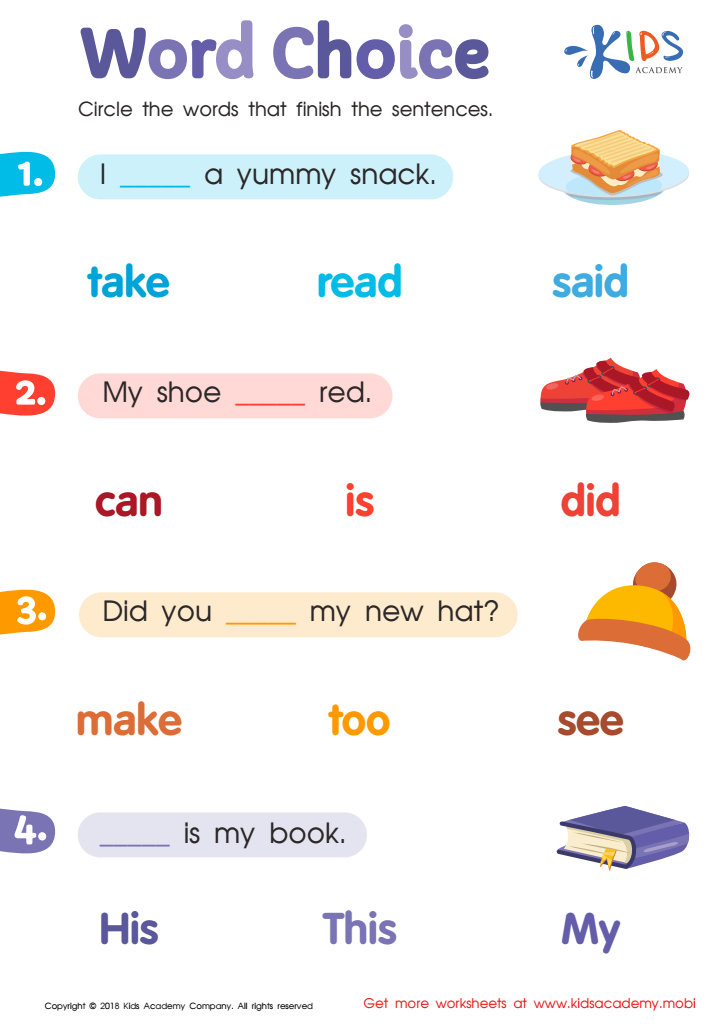Contextual understanding Normal Writing Worksheets for Ages 4-7
4 filtered results
-
From - To
Our "Contextual Understanding Normal Writing Worksheets for Ages 4-7" are tailored to foster early writing and comprehension skills in young learners. Through fun and interactive exercises, children explore vocabulary, sentence creation, and context clues, enhancing their ability to understand and utilize language meaningfully. Each worksheet is designed to engage kids with age-appropriate content, encouraging curiosity and a love for learning. Perfect for classroom or at-home practice, these worksheets support foundational literacy skills, preparing children for future academic success. Empower your child's educational journey with our expertly crafted resources, making learning an enjoyable adventure.


Guess the Meaning Worksheet


Reading: Fill in the Blank Worksheet


Adjectives: At The Zoo Worksheet


Word Choice Worksheet
Caring about contextual understanding in children ages 4-7 is crucial for their cognitive and social development. Contextual understanding goes beyond memorizing words or facts; it involves grasping the meaning behind them and how they fit into real-life situations. When children understand context, they can better follow instructions, comprehend stories, and communicate effectively.
For parents and teachers, fostering this skill means helping children make connections between what they read or hear and their everyday experiences. For instance, when reading a story about animals, discussing how pets at home are similar or different from those in the story can make the content more relatable and memorable. This enriched comprehension enables kids to better retain information and apply it in various contexts, enhancing their learning experience.
Moreover, contextual understanding aids in social interactions. When children recognize the context in conversations, they can respond appropriately, interpret emotions, and pick up on social cues. This skill is vital for building empathy and forming healthy relationships.
In essence, prioritizing contextual understanding helps children become better learners and more empathetic individuals. It lays a foundation for critical thinking and problem-solving, essential skills for their future academic and personal success. Therefore, parents and teachers should actively engage children in activities that enhance this understanding to promote holistic development.

 Assign to the classroom
Assign to the classroom












